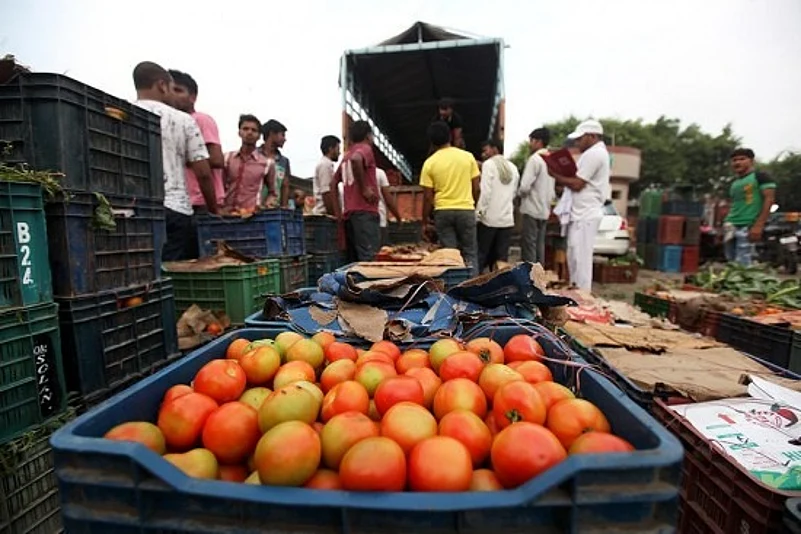Pakistan will not import tomatoes from India though its price has shot up to Rs 300 per kg in parts of the country, Minister for Food Security Sikandar Hayat Bosan has said, amidst a chill in bilateral ties.
Pakistan is currently facing a shortage of tomatoes in the domestic market. While imports from India fill the gap each year, the move to bar containers from entering the country from across the border have created a huge demand- supply gap, the Express Tribune reported.
Local vendors are currently waiting for Sindh's produce to reach the market, the report said.
Bosan told reporters here yesterday that the tomato and onion crisis in Pakistan will be over within a few days after their crops ripen in Balochistan. He made it clear that the government will not import vegetables from India.
The price of tomato has soared to Rs 300 per kg in parts of Lahore and elsewhere in Punjab province, Dawn newspaper reported.
This is in stark contrast to the price of Rs 100-120 per kg in the recent past. The government had also fixed the price for tomatoes between Rs 132-140 per kg, media reports said.
Meanwhile, the Lahore Chamber of Commerce and Industry (LCCI) has hailed Bosan's announcement of not importing tomatoes from India, saying that the move would help local farmers and save foreign exchange for Pakistan.
It was a right decision, said, the LCCI President Abdul Basit, who said that the country has the resources to feed the population.
"Therefore, local growers should be facilitated to the maximum and their issues should be resolved on a priority basis," Basit said in a statement.
"The government needs to increase the cropped area to avoid any crisis-like situation.
"We cannot afford to stay where we are today in terms of cropped area and per hectare yield because we are already running short of per capita food availability.”
The LCCI said that though almost 43 per cent of Pakistan's labour force is dependent upon agriculture, the yield gap in the four major crops of Pakistan is three times compared to the best producers in the world such as China and Egypt.
"Low yield has contributed to poverty in rural areas besides forcing the country to import agriculture produce to feed its population," he said.
The Indo-Pak ties took a nosedive after the January 2016 Pathankot terror attack and the Uri incident in September in the same year. India blamed terrorists based in Pakistan for these terror attacks.
India has told Islamabad that only when Pakistan- sponsored cross-border terrorism ends New Delhi would be ready for talks it.
PTI

























